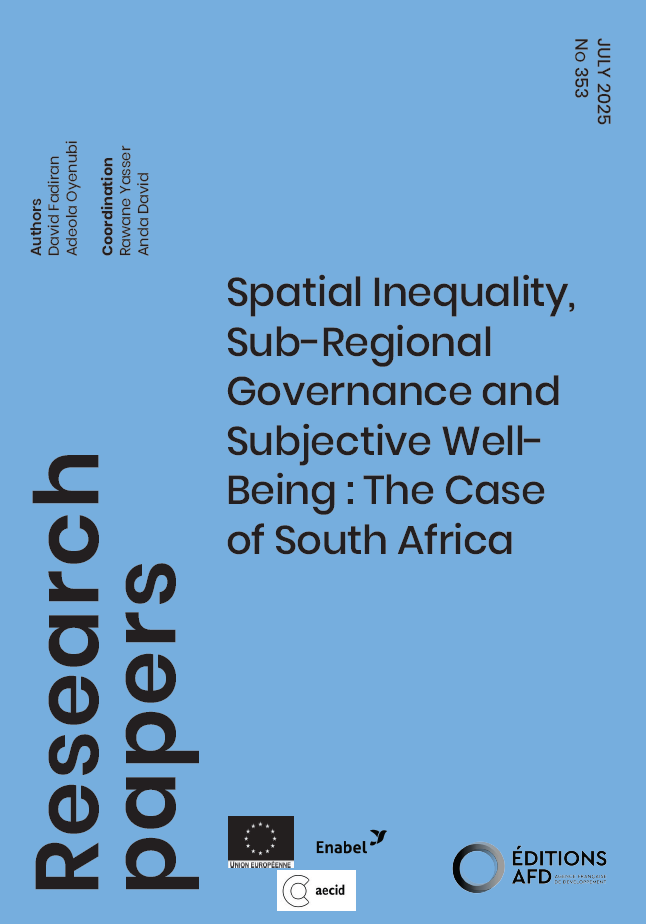Share the page
Spatial Inequality, Sub-regional governance and Subjective Well-being - The case of South Africa
Published on

This paper examines how spatial variation in inequality and quality of institutions interact to explain variation in subjective wellbeing. Literature suggests that better institutions and lower level of inequality improve subjective wellbeing. However, evidence that examine how the interaction between these two variables explain variation in wellbeing is relatively scarce. Specifically, do better institutions improve the relationship between inequality and subjective wellbeing? This question is particularly important in high inequality contexts like South Africa (and other developing countries). Despite several efforts to promote pro-poor growth, South Africa remains one of the most unequal countries in the world. While the country's colonial history and apartheid are known to have contributed to this inequality, the nature and dynamics of its impact on society are yet to be fully understood. The paper assesses how spatial variations in governance across South Africa's district municipalities, as well as its interaction with inequality among individuals (as captured by relative deprivation) explains variation in subjective well-being. The results show marked variation in inequality, well-being and governance across districts. We also find that good governance improves the effect of inequality on subjective wellbeing.
Useful Information
-
Authors
-
David Fadiran, Adeola Oyenubi
-
Coordinators
-
Edition
-
353
-
Page number
-
33
-
ISSN
-
2492 - 2846
-
Collection
-
Research Papers
-
Languages
-
English
